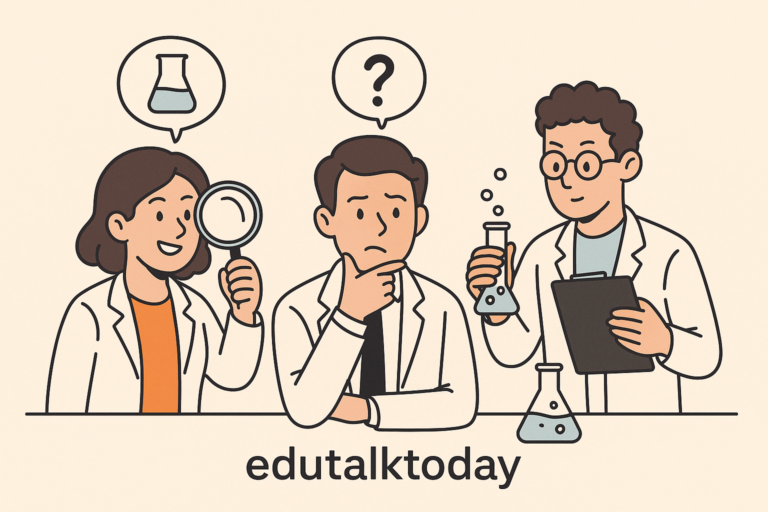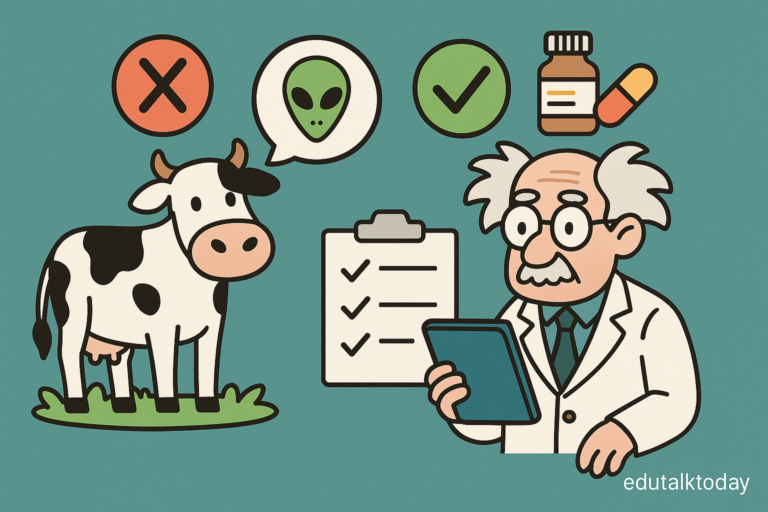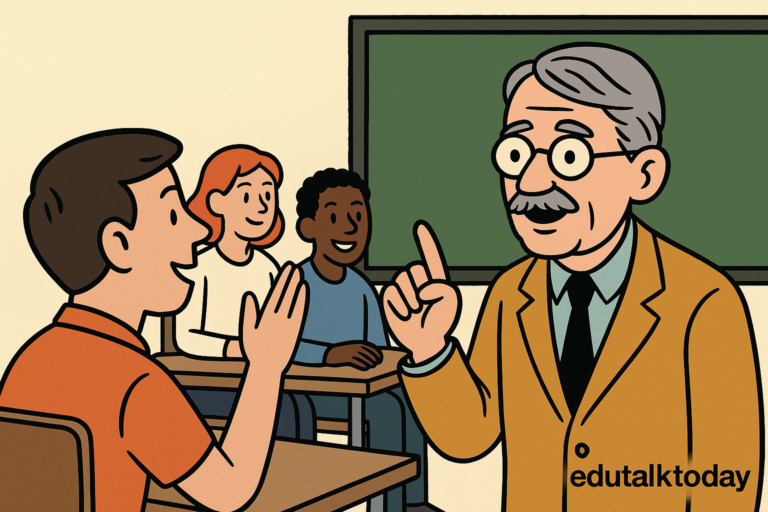How To Use Dewey’s “learn from experience” mantra in daily life?
Every now and then, I’ll reread John Dewey and get hit with the same realization: this guy wasn’t just talking about classrooms or abstract philosophy—he was laying out a blueprint for how we actually live and grow.
His whole “learn from experience” mantra is deceptively simple, almost too easy to nod at and dismiss. But if you think about it, most of us—even as experts—don’t really practice it as rigorously as we could. We experience something, sure, but then rush past the reflection part, or we silo off learning to “formal” settings. Dewey’s genius was reminding us that experience isn’t just background noise; it’s the raw material of knowledge.
And in today’s world, where everything feels accelerated, his reminder feels even sharper. The trick, I think, is figuring out how to actually live this principle, daily, without reducing it to a motivational poster.
Experience as a Continuous Cycle
When Dewey said that we learn from experience, he didn’t mean that every event automatically turns into wisdom. If that were true, then anyone who’s lived long enough would automatically be brilliant.
Clearly that’s not the case. What Dewey really emphasized was that experience becomes educational when it’s processed as a cycle of action and reflection. That’s the nuance that often gets lost in casual retellings of his ideas.
The cycle of doing and thinking
Dewey’s model is closer to what we might today call an iterative loop. You try something, you encounter the results (whether success, failure, or something ambiguous), you reflect on what happened, and then you adjust your next move. It’s not a straight line, and it’s not always tidy. It’s messy, recursive, and deeply contextual.
Think about surgeons doing complex procedures. They don’t just rely on their years of training—they carry each experience forward, refining their judgment with every patient.
A missed stitch, a slightly delayed decision, or a clever improvisation—all of those are logged mentally, reflected on, and folded into future actions. Without that reflective stage, it’s just repetitive labor. With it, it’s professional growth.
Why repetition isn’t enough
This is where Dewey gets interesting for experts. We often assume that mastery comes from sheer hours logged—“10,000 hours” and all that. But repetition without reflection is just habit-building, not knowledge-building.
You can do the same thing for years and still plateau. Reflection breaks that plateau because it forces you to see why something worked, not just that it did.
A good parallel is professional athletes reviewing game tape. Playing more games doesn’t automatically make them better; reviewing those games—pausing, analyzing, re-seeing moments with new eyes—is what sharpens their instincts. That’s Dewey’s cycle in action.
Connecting to modern cognitive science
If this sounds suspiciously modern, that’s because Dewey was ahead of his time. Contemporary research in cognitive science talks about metacognition—the ability to think about your own thinking—as a crucial component of expertise. Reflection isn’t just reminiscing; it’s a cognitive skill that strengthens decision-making and pattern recognition.
Dewey didn’t have the vocabulary of neuroscience, but he intuited this point.
And let’s be honest, even as experts, we’re not always great at it. How often do you go on autopilot, whether in your teaching, coding, writing, or leadership? You finish a project, jump to the next one, and never pause to deliberately extract lessons. That’s where Dewey’s nudge still feels radical.
Real-world examples across fields
Let’s ground this with some concrete cases:
- Medical residents: They’re trained to stop after a shift and do “post-mortems” on cases. Without that ritual, the brutal pace of medicine would just produce burnout, not expertise.
- Product designers: The best ones I’ve worked with don’t just celebrate a successful launch—they hold retrospectives to dissect what user feedback revealed and how their design decisions landed.
- Leaders in organizations: Strong leaders create spaces where teams reflect on projects, not just to celebrate wins but to unpack mistakes. That builds collective intelligence instead of repeating the same stumbles.
In all these cases, the experience itself isn’t the teacher; it’s the structured processing of the experience that transforms it into something you can use again.
Why experts still need the reminder
Here’s the part that makes me smile: even seasoned professionals can fall into the trap of thinking, “I already know how to learn from my experiences.” And yet, if you scratch below the surface, most of us don’t systematically reflect—we do it when convenient, or only after big failures. Dewey’s cycle is a push to normalize it, to make reflection not an occasional event but a built-in part of daily practice.
The payoff is huge. It’s not just about polishing skills; it’s about cultivating adaptability. When the context shifts—and it always does—the people who’ve been practicing reflection are the ones who can pivot gracefully. They’ve built a habit of learning in motion, not just learning in hindsight.
So, Dewey’s mantra isn’t just a quaint piece of educational theory. It’s a provocation: are you truly cycling through action and reflection every day, or are you letting experience slip by unexamined? That question, I think, is what keeps his work alive for experts like us.
Applying Dewey Daily
Here’s where things get practical. It’s one thing to nod along with Dewey’s big idea, and another to actually let it guide your daily routines. The truth is, most of us already have little rituals that could be turned into reflection tools—we just don’t always connect the dots. Dewey would tell us to stop treating “learning from experience” as some grand, rare event and instead weave it into the fabric of our ordinary days.
Morning framing
One of the simplest ways I’ve found to live Dewey’s mantra is to start the day with what I call a micro-hypothesis. It’s not a dramatic plan for self-reinvention—just a small test. For example: “If I check email only three times today, will I feel more focused?” or “If I explain one idea to my team visually instead of verbally, will it land better?” The point isn’t whether the hypothesis proves right or wrong—it’s that you’ve created a frame that turns your day into an experiment. Suddenly, experience isn’t just happening to you; you’re engaging with it deliberately.
I’ve seen senior researchers use this trick in labs, teachers use it in classrooms, and executives use it in their own calendars. The pattern is the same: the day becomes a live experiment instead of a blur.
Feedback loop rituals
Dewey was clear: reflection is the bridge between experience and learning. That means we need regular checkpoints. I personally like journaling, but that’s not for everyone. Voice memos, quick notes in your project management tool, or even a two-minute “mental recap” while walking to grab coffee can all serve the same purpose.
A colleague of mine in design insists on ending every day with three bullet points: one thing that worked, one that didn’t, and one insight to test tomorrow. It takes him less than five minutes, but over time, those notes have turned into a map of his professional growth. That’s Dewey in action, without the heavy theory.
Micro-failures as assets
Here’s something Dewey would probably love: reframing failure as structured data. Instead of treating small missteps as embarrassments to gloss over, what if we treated them as the richest learning opportunities?
Think about an engineer whose deployment crashes at 2 a.m. The failure itself is painful—but the postmortem is gold. Not only do they fix the immediate bug, they also spot patterns that prevent the next dozen bugs. That’s Dewey’s cycle: the sting of failure transformed into a resource.
I try to keep what I call a “failure log.” Not dramatic career implosions, but the tiny mistakes: a misphrased email, a clumsy client explanation, a missed cue in a talk. By jotting them down and reflecting later, I get to turn awkwardness into fuel.
Experience tagging
This one may sound nerdy, but hear me out. Not all experiences are equally rich for reflection. Some are routine, some are novel, some are deeply challenging. By mentally tagging experiences, you can allocate your reflection energy wisely.
For instance, I don’t waste time reflecting on every routine meeting.
But when I walk out of a high-stakes negotiation, or when a teaching session takes an unexpected turn, I’ll stop and process it. I ask: what exactly happened, what surprised me, what did I do well, and what would I try differently? This way, reflection isn’t just constant noise—it’s targeted and efficient.
Shared reflection
Finally, Dewey was a big believer that learning is social, not just private. That’s why I like peer conversations as a reflection amplifier.
You know how sometimes, when you tell someone about an experience, you suddenly see it differently yourself? That’s the magic.
Teams that normalize “retrospectives” or “after-action reviews” aren’t just being trendy; they’re applying Dewey collectively. When reflection becomes shared, you don’t just learn from your own experiences—you learn from others’ too. I’ve had breakthroughs in my own thinking because a colleague casually unpacked a failure I’d never encountered.
That’s collective intelligence, Dewey-style.
Why daily practice matters
The beauty of these practices is that they don’t require overhauling your life. They’re small, repeatable ways to make sure experience doesn’t slip through your fingers. The real trick is consistency. A single reflection won’t change you much, but a habit of reflection compounds.
Dewey’s mantra, lived this way, doesn’t just help you sharpen your craft—it changes your relationship with daily life. Every conversation, project, or even mistake becomes part of your ongoing education. That’s the kind of mindset that keeps experts fresh instead of calcified.
Extending Dewey Beyond Yourself
If Dewey were around today, I think he’d be fascinated by how his ideas play out not just in individuals, but in groups and organizations. We tend to treat “learning from experience” as a personal growth strategy, but what happens when you apply it at scale? Suddenly, Dewey isn’t just a philosophy for self-improvement—he’s a framework for building smarter teams, companies, even societies.
Building reflective cultures
I’ve seen this most vividly in organizations that embed reflection into their workflows. Take software companies that bake postmortems into their processes. They don’t just fix the bug—they ask, “What did this teach us about our assumptions, our tools, our communication?” That collective reflection becomes part of the company’s DNA.
The opposite also happens: companies that never reflect, only firefight. They repeat the same crises, because nobody pauses to extract lessons. Dewey would say they’re rich in experience but poor in learning.
Leaders as facilitators of learning
Leaders have a special role here. Dewey’s cycle can’t just be left to individuals; it needs space and permission. The best leaders I know create those spaces deliberately. They’ll pause a project midstream to ask, “What are we noticing? What’s surprising us?” Or they’ll hold reflective retreats not just to plan the future but to metabolize the past.
One CEO I worked with instituted a weekly “failure share” session. At first, people rolled their eyes. But over time, it became a safe place to reflect collectively, and it actually accelerated innovation. People stopped hiding mistakes and started treating them as raw material for growth. That’s Dewey’s spirit, translated into organizational life.
Experience as iteration, not memory
Here’s the subtle but powerful shift Dewey pushes us toward: treating experience not as a record of the past, but as fuel for the next iteration. In organizations, that means moving away from “we’ve always done it this way” toward “what did the last attempt teach us?”
You see this in agile development, where short sprints and retrospectives are built into the rhythm. But it’s not limited to tech. Hospitals use “Morbidity and Mortality” conferences to review cases, schools use lesson study groups to refine teaching, and even sports teams do film reviews. The shared principle is the same: experience isn’t stored in a drawer—it’s actively recycled into the next action.
The danger of skipping reflection at scale
There’s also a warning here. When organizations skip reflection, they risk calcifying. They keep repeating mistakes, or they rely on outdated assumptions long after the context has shifted. It’s like driving with a dirty windshield—you keep moving, but your vision gets fuzzier.
Dewey helps us see that reflection is not a luxury; it’s an operational necessity. In fast-changing environments, the organizations that survive are the ones that treat every project, every misstep, every success as a data point to process and reapply.
From individual to collective wisdom
What excites me most is how Dewey’s mantra scales up. An individual who reflects becomes wiser. A team that reflects becomes smarter. An organization that reflects becomes adaptive. And when reflection is baked into communities or societies, you get cultures that don’t just endure shocks but evolve through them.
Think about how public health systems reflect on past pandemics, or how entire industries shift after disasters. When those reflections are honest and structured, they change the course of history. That’s Dewey, hiding in plain sight.
Why this matters for experts
As experts, we’re often put in positions where our experience shapes not just our own work, but the environments we lead or influence. Applying Dewey personally is powerful, but applying him to the systems around us is transformative. It means asking: how do we create cultures where experience is constantly turned into wisdom, not just stored as memory?
That question doesn’t have a neat answer, but it’s one worth sitting with. And it’s the kind of question Dewey would probably smile at—because it means we’re still learning from the messiness of life, together.
Final Thoughts
Dewey’s “learn from experience” isn’t a mantra to quote; it’s a practice to live. For individuals, it means turning daily moments into cycles of action and reflection. For organizations, it means building cultures where experiences are processed, not wasted. And for all of us, it’s a reminder that wisdom doesn’t come from time passing—it comes from what we do with what happens. If we can treat every day, every mistake, every conversation as raw material for learning, then Dewey’s voice is still alive, guiding us forward.





